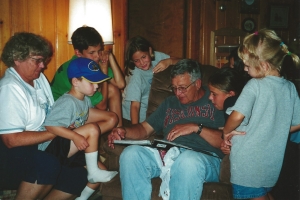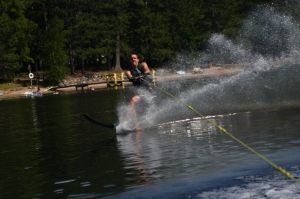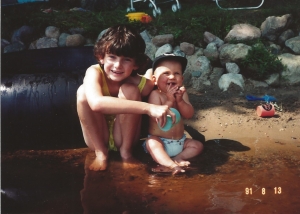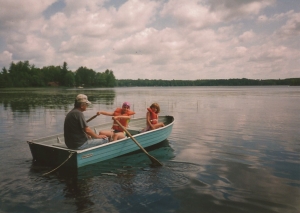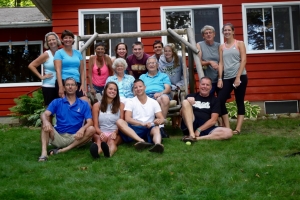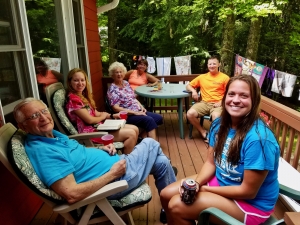 You love to be on water, in water, underwater, treasuring the silky, smooth, feeling of cool velvet on your skin.
You love to be on water, in water, underwater, treasuring the silky, smooth, feeling of cool velvet on your skin.
You can tolerate inconveniences. The toilet may back up, electricity may go off and bugs will bite for sure. But you roll with it.
You enjoy passing on traditions – first hike, first bike ride, first ghost walk, first snipe hunt, first fishing trip, first swim and first ski.
You find bliss simply lying on the dock watching the clouds drift by.
You hate mice, mosquitoes and flies as much as anybody, but you tolerate them for the chance to live as close to nature as possible without having to sleep in a tent.
You don’t mind sharing.
You love to read curled up with a good book in front of the lake, the woods and the fireplace.
You think daydreaming is a fine art.
You believe boats were made for towing skiers, catching fish, or circling the lake slowly admiring sights, not for speed racing.
You know that drunken boaters on a lake are as dangerous as intoxicated drivers on the road.
You can fall asleep on lumpy beds and doze off in those old aluminum, webbed lawn chairs.
You think everything tastes better grilled and eaten off a paper plate.
Your heart still skips a beat every time you spot an eagle soaring over the lake, a white tailed fawn leaping through the forest, or the rare glimpse of a bear lumbering across your front yard.
You appreciate everything wild – wild flowers, wild animals, wild berries and wild fishing fibs.
You can make a campfire better than a Boy Scout.
The wind in the trees sounds like music to your ears.
You can survive without Internet.
You know that tiny ticks hiding in tall grasses are more dangerous than big black bears in trees, but go outside anyway properly protected.
You can live quite happily in swimsuits and flip-flops.
You enjoy reminiscing in front of a fire.
You think playing word games with neighbors is perfect entertainment.
You still enjoy self-propelled water travel – kayaking, stand up paddling, canoeing, sailing, and swimming.
You love biking, hiking, walking, talking and eating.
You cherish family.
You can watch a sunset melt like orange lava behind the treeline and feel overwhelmed with gratitude for another day in paradise.
Thanks Dad for building, care taking and sharing our little red cottage. Because of you, generations of families and friends learned to love cabin life.
Happy Father’s Day!
